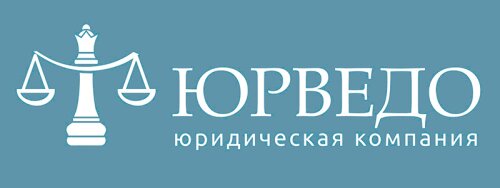Best Restructuring & Insolvency Lawyers in Moscow
Share your needs with us, get contacted by law firms.
Free. Takes 2 min.
List of the best lawyers in Moscow, Russia
About Restructuring & Insolvency Law in Moscow, Russia
Restructuring and insolvency law in Moscow, Russia, is a specialized legal field focusing on situations where businesses or individuals face financial difficulties. These laws provide structured processes to support the reorganization of financially distressed businesses, protect creditors' rights, and enable the orderly resolution of insolvency. The landscape in Moscow is largely defined by federal legislation, including the Federal Law on Insolvency (Bankruptcy), along with important local legal practices and court procedures. These regimes are designed to balance the interests of debtors, creditors, employees, and other stakeholders, seeking fair solutions while maintaining legal order in the marketplace.
Why You May Need a Lawyer
Legal challenges in restructuring and insolvency can be complex and stressful, especially if you are not familiar with Russian law. You may require a lawyer in situations such as:
- Your business is experiencing financial difficulties and you need advice on restructuring debts.
- Creditors are pursuing claims against your company in Moscow.
- You are a creditor seeking to recover debts from a debtor in insolvency.
- Bankruptcy proceedings are threatened or initiated against you or your business.
- You need to protect assets or negotiate with creditors in the context of financial distress.
- You want to understand your rights and obligations under Russian insolvency law.
An experienced lawyer can help assess your situation, develop a strategy, represent your interests in negotiations and court, and guide you through complex procedures.
Local Laws Overview
Restructuring and insolvency procedures in Moscow are governed by the Federal Law No. 127-FZ "On Insolvency (Bankruptcy)" and a range of supporting regulations and practices. Key aspects include:
- Initiation of Proceedings: Both debtors and creditors may initiate insolvency proceedings if certain thresholds are met.
- Moratorium: Upon initiation of proceedings, a temporary stay (moratorium) on debt enforcement may be imposed to protect the debtor.
- Types of Procedures: The law distinguishes between observation, financial rehabilitation, external management, and liquidation stages, each with distinct rules and goals.
- Creditor Committees: Creditors actively participate in the proceedings, including decision-making through creditor committees.
- Administrator’s Role: Court-appointed insolvency administrators oversee and manage the debtor’s property and operations during the process.
- Personal Bankruptcy: Individuals, as well as companies, may undergo bankruptcy procedures under specific provisions.
- Local Jurisdiction: In Moscow, cases are typically handled by the Moscow Arbitration Court, following procedural rules specific to the region.
Understanding these laws and their local interpretation is key to achieving the best possible outcome in restructuring or insolvency scenarios.
Frequently Asked Questions
What is the difference between restructuring and insolvency in Russia?
Restructuring typically refers to reorganizing a business's debt and operations to avoid insolvency, while insolvency is a legal state where a person or company cannot pay their debts and may face formal bankruptcy proceedings.
Who can start bankruptcy proceedings in Moscow?
Both debtors and creditors can initiate bankruptcy proceedings by filing a petition with the Moscow Arbitration Court if certain legal and financial criteria are met.
What are the main stages of bankruptcy in Russia?
The main stages include observation, financial rehabilitation, external management, and liquidation. Each plays a role at different points in the insolvency process and serves specific purposes.
Can individual entrepreneurs and private persons file for bankruptcy?
Yes, both individual entrepreneurs and private individuals can initiate personal bankruptcy under Russian law, subject to certain conditions and procedures.
What happens to the debtor's assets during bankruptcy?
During the bankruptcy process, an insolvency administrator is appointed to manage, value, and, if necessary, liquidate assets to satisfy creditors' claims.
Do creditors have any control during the process?
Creditors participate actively through creditors' meetings and committees, making decisions on key issues, including the approval of restructuring plans and the sale of assets.
How long do bankruptcy proceedings take in Moscow?
The duration varies depending on the complexity of the case and the stage. Some proceedings can last several months, while more complex bankruptcies may take years to resolve.
What are the consequences of bankruptcy for individuals?
For individuals, bankruptcy can lead to loss of property and restrictions on financial activities, but it also provides relief from overwhelming debt and a legal reset after the process concludes.
Can a company continue to operate during insolvency?
In some cases, such as during observation or rehabilitation, companies may be allowed to continue operating under the supervision of an administrator to improve their financial position.
Are out-of-court debt restructuring options available?
Yes, negotiating an out-of-court settlement or restructuring arrangement with creditors is possible and, in some cases, preferable to formal court proceedings.
Additional Resources
People seeking information or help with restructuring and insolvency matters in Moscow may find useful resources at the following organizations:
- Moscow Arbitration Court: The primary court handling insolvency and restructuring cases in the region.
- Federal Tax Service of Russia (FTS): Maintains registers of insolvency administrators and provides official guidance on bankruptcy issues.
- The Unified Federal Register of Bankruptcy Information (Fedresurs): Publishes important legal notices related to bankruptcy proceedings in Russia.
- Local legal aid centers and non-governmental organizations: Offer consultations and support for individuals and small businesses facing financial difficulties.
It is recommended to consult these bodies for publicly available information, guidance on procedural steps, and lists of certified insolvency professionals.
Next Steps
If you or your business is facing financial distress or considering insolvency or restructuring in Moscow, the following steps will help you move forward:
- Seek a consultation with a qualified restructuring and insolvency lawyer in Moscow to assess your situation.
- Gather all relevant financial documents, contracts, and correspondence regarding your debts and obligations.
- Consider whether out-of-court negotiation with creditors is possible before engaging in formal bankruptcy proceedings.
- Understand your rights and obligations under Moscow and federal law before taking any legal actions.
- Be prepared to act promptly, as delays can affect your legal options and outcomes.
Taking early, informed action with the assistance of a legal specialist is crucial for successfully managing restructuring and insolvency proceedings in Moscow, Russia.
Lawzana helps you find the best lawyers and law firms in Moscow through a curated and pre-screened list of qualified legal professionals. Our platform offers rankings and detailed profiles of attorneys and law firms, allowing you to compare based on practice areas, including Restructuring & Insolvency, experience, and client feedback.
Each profile includes a description of the firm's areas of practice, client reviews, team members and partners, year of establishment, spoken languages, office locations, contact information, social media presence, and any published articles or resources. Most firms on our platform speak English and are experienced in both local and international legal matters.
Get a quote from top-rated law firms in Moscow, Russia — quickly, securely, and without unnecessary hassle.
Disclaimer:
The information provided on this page is for general informational purposes only and does not constitute legal advice. While we strive to ensure the accuracy and relevance of the content, legal information may change over time, and interpretations of the law can vary. You should always consult with a qualified legal professional for advice specific to your situation.
We disclaim all liability for actions taken or not taken based on the content of this page. If you believe any information is incorrect or outdated, please contact us, and we will review and update it where appropriate.















